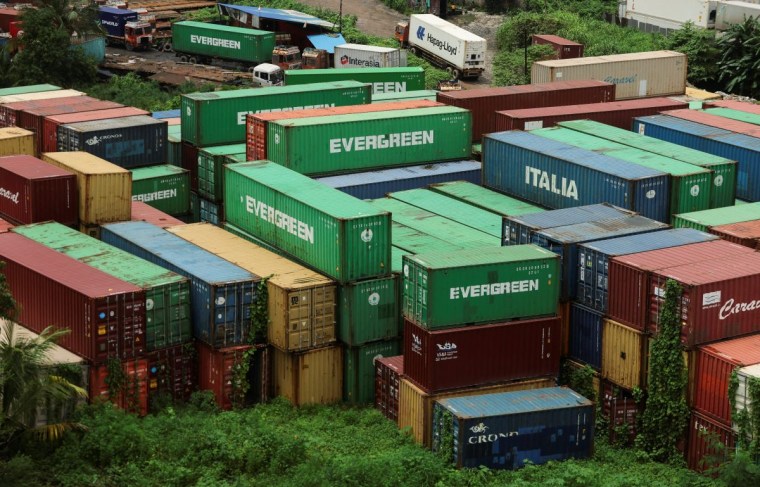The court has ruled that the tariffs can remain in place until October while appeals take place
A US appeals court ruled on Friday that most of Donald Trump’s tariffs are illegal, undercutting the president’s use of the levies to exert political pressure and to renegotiate trade deals with countries that export goods to the United States.
“The statute bestows significant authority on the President to undertake a number of actions in response to a declared national emergency, but none of these actions explicitly include the power to impose tariffs, duties, or the like, or the power to tax,” the court said.
The tariffs also impact many businesses in the UK, with many pausing exports to the US while the uncertainty around the tariffs is resolved.

The decision from the US Court of Appeals for the Federal Circuit in Washington, DC, addressed the legality of what Trump calls “reciprocal” tariffs imposed as part of his trade war in April, as well as a separate set of tariffs imposed in February against China, Canada and Mexico.
The court’s decision does not impact tariffs issued under other legal authority, such as Trump’s tariffs on steel and aluminum imports.
The court also ruled that the tariffs can stay in place until October 14 to allow any appeals to their decision.
In response, Trump blasted the decision on social media.
“ALL TARIFFS ARE STILL IN EFFECT! Today a Highly Partisan Appeals Court incorrectly said that our Tariffs should be removed, but they know the United States of America will win in the end,” Trump said in a post on Truth Social.
Trump justified both sets of tariffs – as well as more recent tariffs – under the International Emergency Economic Powers Act.
It gives the president the power to address “unusual and extraordinary” threats during national emergencies.
“It seems unlikely that Congress intended, in enacting IEEPA, to depart from its past practice and grant the President unlimited authority to impose tariffs,” the ruling said.
“The statute neither mentions tariffs (or any of its synonyms) nor has procedural safeguards that contain clear limits on the President’s power to impose tariffs.”
The 1977 law had historically been used for imposing sanctions on enemies or freezing their assets.
Trump, the first president to use IEEPA to impose tariffs, says the measures were justified given trade imbalances, declining US manufacturing power and the cross-border flow of drugs.
Trump’s Department of Justice has argued that the law allows tariffs under emergency provisions that authorize a president to “regulate” imports or block them completely.
Trump declared a national emergency in April over the fact that the U.S. imports more than it exports, as the nation has done for decades.
Trump said the February tariffs against China, Canada and Mexico were appropriate because those countries were not doing enough to stop illegal fentanyl from crossing US borders, an assertion the countries have denied.
The appeals court ruled on two cases, one brought by five small US businesses and the other by 12 Democratic-led US states, which argued that IEEPA does not authorise tariffs.
The Constitution grants Congress, not the president, the authority to issue taxes and tariffs, and any delegation of that authority must be both explicit and limited, according to the lawsuits.
With Reuters
